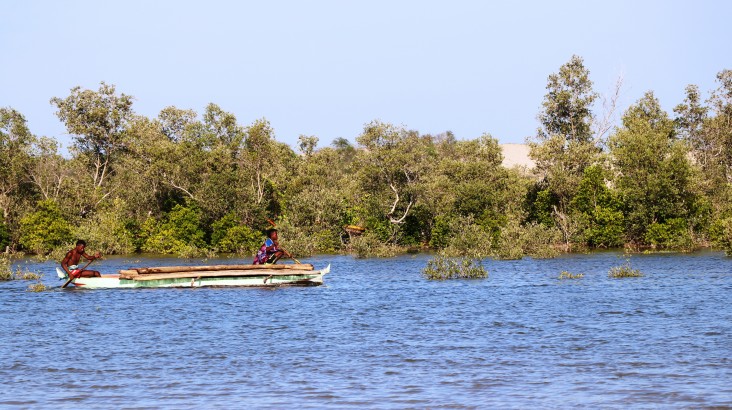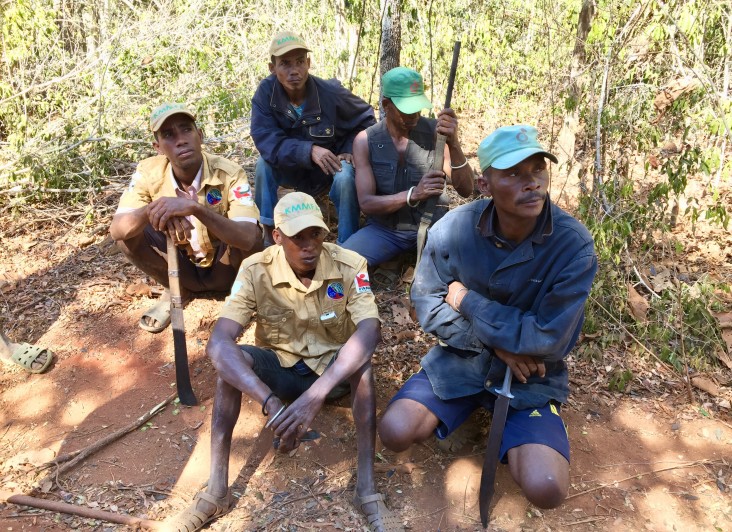Speeches Shim

The outrigger canoe moved swiftly through the large mangrove channel, led by the sure hand of the paddler seated behind us. The morning was still. The only sound came from the sluice of the paddle through the water and the occasional shrieks from birds overhead, alarmed by our intrusion.
We were headed for Kivalo, a fishermen’s village located one hour by canoe north of Mangily, in Morondava, Menabe region. A little more than 60 huts make up the village, which is not accessible by road. Justin Rakotomanahira lives here and presides over the Vondron’Olona Ifotony (VOI) or community-based association that manages and protects the local resources, particularly mangroves.
The mangroves around Kivalo are divided into multiple zones. Six of those mangrove zones are designated for use by the local community members under what they call ‘the user right’. In these areas trees can be used for fire and construction wood. The remaining areas are “ala faly”, or ‘protected areas’ in Malagasy.
According to Justin, some residents are tempted to use the mangrove trees in the ‘ala faly’, but the VOIs, aided by rangers, are keeping good watch. Threats still exist. Some former residents who left the community to work somewhere else have come back to Kivalo after failed harvests, and settled on the periphery of the village. They have sought to illegally cut the mangroves for charcoal. The VOIs and rangers caught three such lawbreakers in 2018 with 21 charcoal bags, and turned them in to law enforcement in Morondava. They also seized 59 active furnaces on the edge of the forest.
The VOIs’ work is risky and they fear retaliation by the lawbreakers. Justin says that a Dina (local covenant) is in force in the fokontany, and all those caught breaking the law were fined Ariary 50,000. However, tensions mounted and the VOI members felt threatened, so in November Justin decided to approach the regional environmental authorities and asked them to send in the security forces. He reports that with the support of the security forces the situation is now under control.

Asked why he and the VOI members continue to protect the mangrove forest in spite of the threats from the traffickers, Justin says, “I protect my country, and I am not afraid to die.” The mangroves are important to these villagers because they are the source of most of their food and livelihoods. The sheltering mangroves provide the habitat for mud crabs people eat, nurseries for small fish that they will one day catch and sell, and offer protection from coastal flooding and erosion, securing the safety of the villages.
The community is trying out ecotourism and bee-keeping as new ways to make a living. Justin adds that he hopes the situation will change for the better in future, and that is why he keeps on raising people’s awareness of the need to protect and preserve the local resources. His wife, Josephine Raharinirina, is afraid for her husband’s life but thinks his work is for a good cause, as he wants to improve the community’s livelihood.
The USAID-funded USAID Mikajy environmental program will soon begin activities in Menabe. The program will be working with communities and supporting local leaders like Justin to preserve biodiversity and build new, sustainable livelihood opportunities in harmony with their surroundings.

Comment
Make a general inquiry or suggest an improvement.